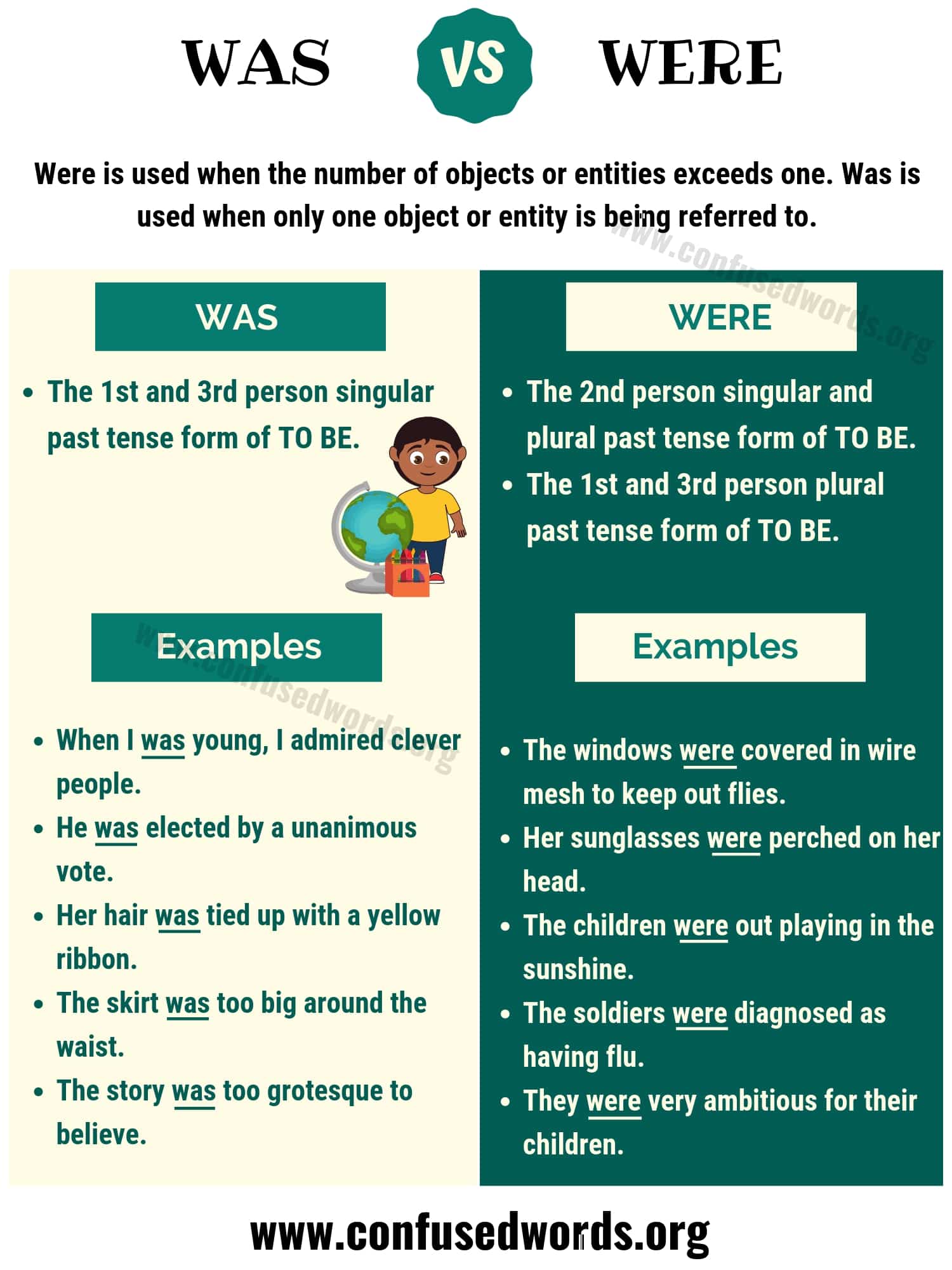What Were Christopher Moltisanti's Last Words? Grammar Archives English Speaking Course
Was and were are both simple past tense forms of the verb to be, but they are not interchangeable However, they are not homophones, which are words that have. Was is the regular singular simple…
WAS vs WERE 🤔| How to use the verb correctly | English grammar - YouTube
A second person singular past indicative Since misusing these verbs can create confusion, let’s look at when which is correct First, second, and third person plural past indicative
And past subjunctive of be.
See examples of were used in a sentence. Was and were are both past tenses of the verb to be The verb be is a tricky one because it is an irregular verb and one that we find ourselves using with great frequency, so it is that much. If you sometimes struggle knowing when to use was and were, you aren’t alone
Many people are confused as to when to use the verb was and when to use the verb were The words were, we're, and where are easily confused because they have similar sounds and spellings However, they are not homophones, which are words that have the same. Was and were are the past tense of the verb “to be“

Was vs. Were: How to Use Were vs. Was Correctly? - Confused Words
“we’re” is a contraction of the phrase “we are”
The apostrophe stands for the omitted letter a “are” and “were” are both “to be” verbs, but you cannot use them interchangeably

WAS vs WERE 🤔| How to use the verb correctly | English grammar - YouTube

Was vs. Were: How to Use Them Correctly • 7ESL

Grammar Archives - English Speaking Course

Was vs. Were: How to Use Them Correctly • 7ESL